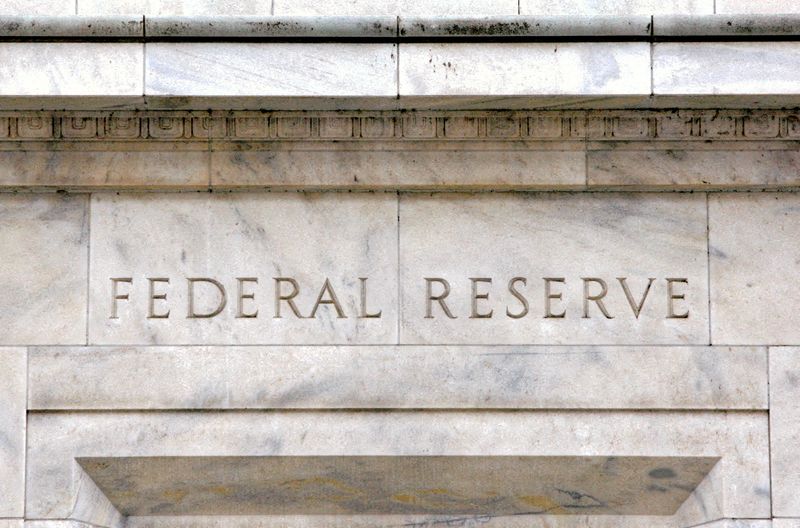Select Language

By Ann Saphir
WASHINGTON (Reuters) -Federal Reserve Chair Jerome Powell declined on Wednesday to say he expects a "soft landing" for the U.S. economy, but that sure was the picture painted by policymakers in their newest economic forecasts.
Fed officials, indeed, appear to be growing more confident than ever in being able to cool inflation without a recession or a sharp rise in unemployment.
They expect economic growth to slow next year to about 1.5%, from 2.1% this year, and for the unemployment rate to go no higher than 4.1%, the latest quarterly summary of their projections shows. That's just a smidge higher than the 4% level they see as sustainable in the long-run, and only a few tenths more than its current 3.8% level.
Just three months ago they anticipated U.S. GDP to grow only 1.1% next year, after just 1% this year, and for the unemployment rate to peak at 4.5% next year and still be there at the end of 2025.
But asked during a press conference if he would now call the soft landing a baseline expectation, Powell demurred.
"No, I would not do that," he said. "I've always thought that the soft landing was a plausible outcome...ultimately, this may be decided by factors that are outside our control at the end of the day, but I do think it's possible."
The autoworker strike, a possible government shutdown, the resumption of student loan repayments, higher energy prices, and higher long-term borrowing costs are among risks that Powell noted could affect the trajectory of the economy, inflation and, ultimately, where Fed policymakers decide they need to take rates.
ONE MORE TIME
The summary of forecasts shows most policymakers continue to expect one more interest-rate hike this year, bringing the policy rate to 5.6%, after the Fed held rates steady in a range of 5.25-5.50% on Wednesday, as widely expected.
The rosier economic picture also came with projections for fewer rate cuts next year than envisioned three months ago.
Policymakers now expect to end next year with short-term borrowing costs at 5.1%, a half percentage point higher than they anticipated in June.
The dialed-back pace of anticipated policy easing next year goes hand in hand with what policymakers expect to be uneven progress toward the Fed's 2% inflation goal, with inflation seen ending this year a little higher than projected in June.
Fed officials now see the personal consumption expenditures price index at 3.3% at year end, versus June's forecast of 3.2%, and at 2.5% by the end of next year. For 2025, they upped expected inflation slightly to 2.2% from the 2.1% projected in June, and their first look at 2026 showed them reaching their 2.0% inflation goal that year.
Fed officials expect further reductions in the policy rate as well, to 3.9% by the end of 2025 - above the 3.4% they projected in June - and to 2.9% by the end of 2026.
That would still be above the 2.5% they continue to see as the long-run neutral policy rate - the level of borrowing costs that neither slows nor stimulates a healthy economy.
The path of rates laid out in the projections is neither a plan nor a guarantee, Powell said - it's merely a best guess of what it will take to bring inflation back down to 2%.
"A soft landing is a primary objective and I did not say otherwise," Powell said. "I mean, that's what we've been trying to achieve for all this time. The real point though, is the worst thing we can do is to fail to restore price stability."

